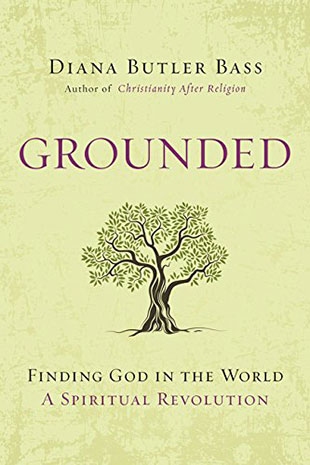"One of the first phrases I remember to describe spiritual practices came from John Wesley, the eighteenth-century founder of the Methodist Church: 'holy habits.' A keen observer of human nature, Wesley saw that bad behavior and moral failings were practiced acts, often taught by and reinforced through the surrounding environment. Quite simply, unethical conduct was a habit, personal to be sure, but also a habit shaped by the larger community in which one lived or worked or worshipped. Habits of moral transgression might arise by accident, through ignorance, carelessness, or willful imitation, but they were always reinforced by spiritual inattentiveness. Having noticed the relationship between bad habits and environment, Wesley reversed the formula. Could virtue become habitual as well? He went on to teach that men and women must practice 'holy habits' in mutually supportive homes and communities in order to know God and create a more just society; and a more just society would naturally foster habits leading people to a deeper spiritual awareness. Habit and habitat went together. To ignore the relationship between the two imperiled both the soul and the social order. To be intentional about habit and habitat, however, was salvation.
"The words 'habit,' 'habitat,' and 'inhabit' all come from the same Latin root meaning 'to hold or possess' or, in a related sense, 'to dwell.' The terms refer to customary actions or conditions, such as repeated acts or comfortable environments, all involving a sort of unreflective regularity. Habits and habitats are ordinary things often taken for granted. Thus Wesley's genius, and the genius of many other spiritual masters, was to develop ways for people to pay attention to habits and habitats, practicing love, acceptance, and kindness in ways that focus spiritual attention and transform lives. Instead of dwelling in whatever happens to be of the moment, paying attention to what we do and the shape of the environments where we do things can transform regular things and customary acts into the stuff of human spirit, the soul of community.
"When it comes to understanding home, faith traditions have emphasized relationships over physical location, often recognizing that those who dwell in the same household constitute the nearest of neighbors. Home incubates our first habits, the repeated actions that form character. What happens at home does not stay at home, however. The home is a training ground for spiritual and ethical habits that we take out into the world as adults. Because households nurture habit, they can be schools of intentional spiritual practice. Things like sharing, eating together, praying, conversation, critical thinking, acceptance, forgiveness, and charity can become habitual. Home can be a genuine community, where love overcomes isolation. In recent years, researchers have discovered that people and families who engage in spiritual practices at home are generally happier, more involved in the community, and healthier. Thus, churches, synagogues, temples, and mosques have placed greater emphasis on spiritual practices in the last two decades, encouraging the faithful to assume domestic responsibility for the moral formation of their families."
